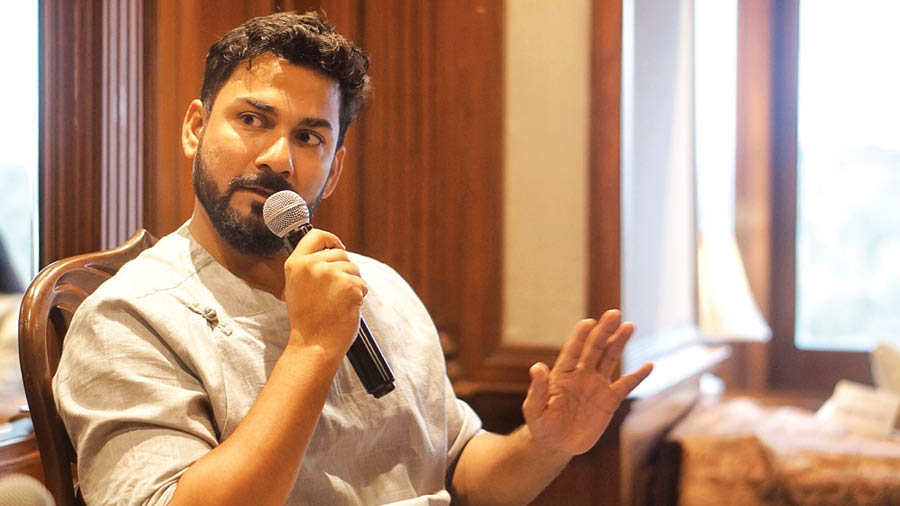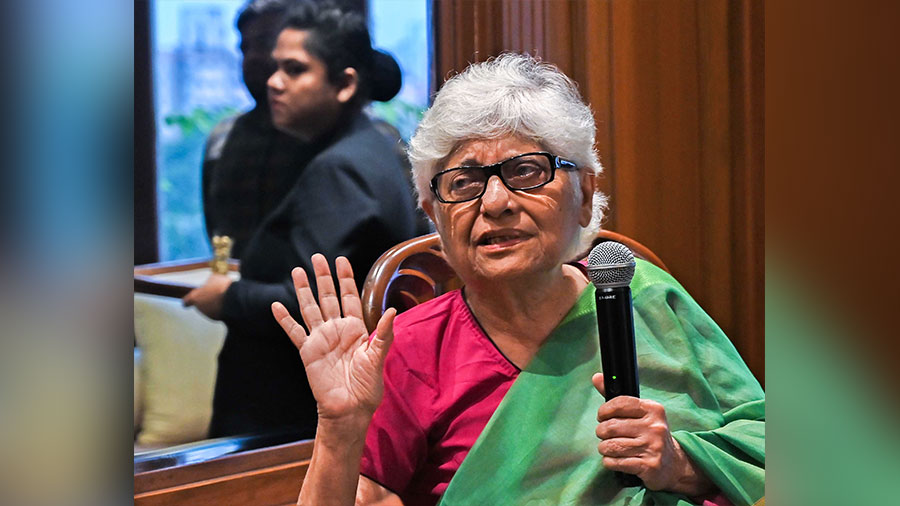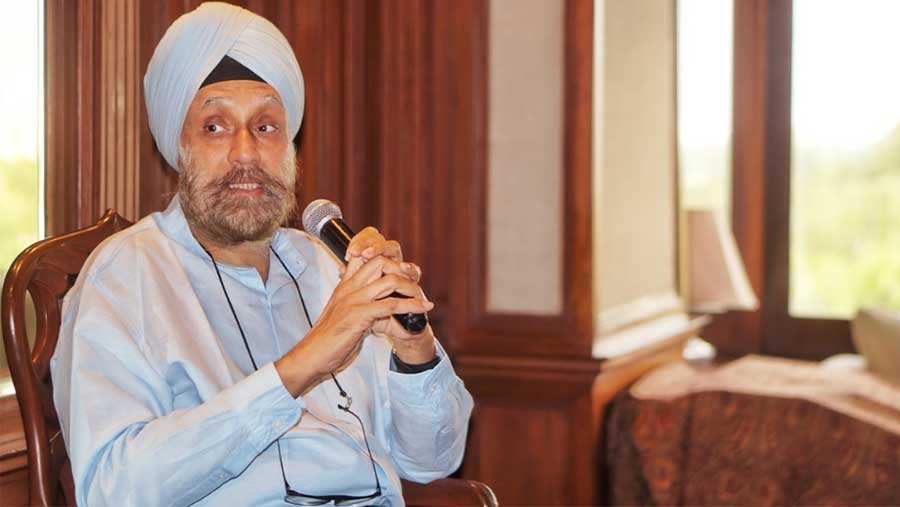Sadaf Hussain wears many hats. He is a consultant chef, author, podcaster, a TEDx speaker and a whole lot more. However, out of all his identities, the one that he prefers most is that of being a foodie. A MasterChef India finalist in 2016, Hussain has forged a place for himself in today’s culinary landscape. Seeking to dispel myths about Muslim food as part of his culinary journey, Hussain wrote Daastan-e-Dastarkhan: Stories And Recipes from Muslim Kitchens, back in 2019. More recently, he has contributed to Desi Delicacies: Food Writing from Muslim South Asia, an edited anthology by Claire Chambers. At the latest session of An Author’s Afternoon, organised by Prabha Khaitan Foundation at Taj Bengal, in association with Shree Cement Limited, with My Kolkata as digital partner, Hussain detailed his food story, the inspirations behind the storytelling and more with Anjum Babukhan, Ehsaas Woman of Hyderabad.
For the love of food
Growing up in Ranchi, Hussain’s earliest memories are that of food and being completely in love with it. At a time when children his age were aspiring to become doctors and engineers, Hussain was focused on being the “fattest kid on earth”. This intense love for food gradually transformed into an innate desire for understanding it. Observing how food was prepared in local eateries provided him with the impetus to try cooking it.
“I started exploring and checking what the cooks at these local eateries were making. How were they making chilli chicken? How were they making manchurian? These led me to try making food. I was also inspired by my mother, who, like all mothers, believed that everything can be made at home,” revealed Hussain. However, despite his love for food, Hussain only ended up pursuing it professionally out of boredom. It was while dabbling in public policy, animation and economics that he happened to start a food pop-up with his friend called Bread and Better between 2015 and 2016, before he went to MasterChef India.
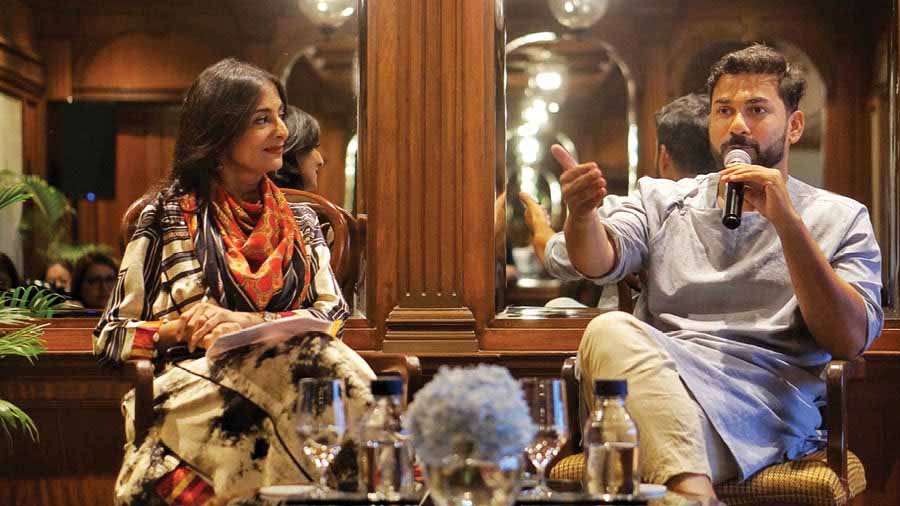
Anjum Babukhan (left) in conversation with Hussain
‘Food helps me flirt with the city better’
Hussain believes that the soul of a city can be found in its food. But nowhere can it be found better than in street food. Citing the examples of Mumbai, Delhi and Kolkata, he pointed out how the street food of the cities are essentially a reflection of the people and their lifestyles.
“Delhi’s chole bhature reflects the laid-back and relaxed nature of Delhi’s people. It’s a dish to savour at a leisurely pace. Mumbai’s vada pav, on the other hand, is a fast-paced and no-nonsense food that mirrors the hustle and constant motion of Mumbai’s people. There’s no time to sit down; it’s all about grabbing and going. Kolkata’s jhal muri is a blend of various elements, much like the diverse personalities in the city. It signifies a sense of togetherness, where different components come together as one,” he noted.
Among other things, Hussain is also known as a “food romancer”, a title that helps him to understand how cities keep changing over time. As a lover of food, the evolving trends in the cities’ eating habits help him know the cities better thereby increasing his admiration for them.
“Food tells me how the city changes. Even though we’re talking about my romance with food, the food in turn helps me flirt with the city better,” he confessed.
‘Give respect to your own food and make people eat your food’
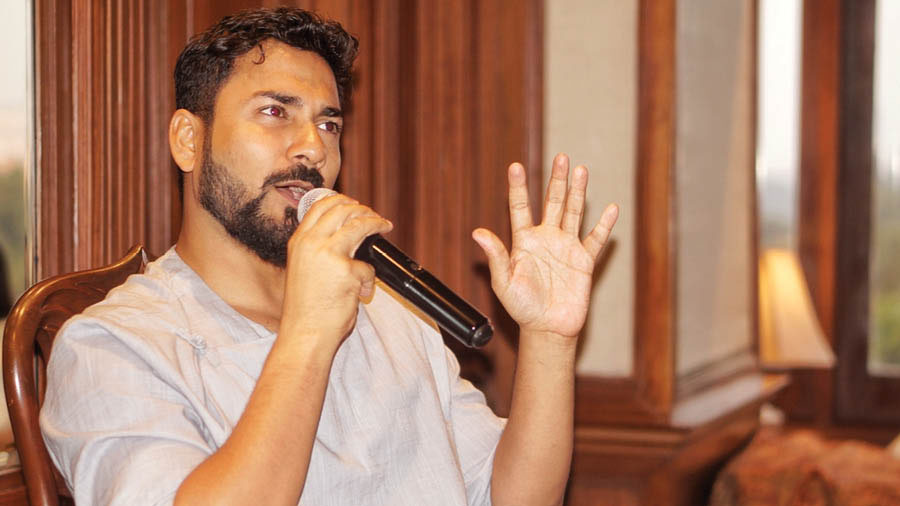
Hussain spoke about the four key takeaways from his time at MasterChef India
Speaking of his experience of participating in MasterChef India, Hussain pointed out that he came back from the show with four key takeaways: “Give respect to your own food and make people eat your food. That was my first takeaway. The second was to communicate with people about the food that they’re eating, as it fosters a sense of connection and understanding. Third, to write about my culinary experiences, as the words will outlive me. Lastly, I learnt about embracing the art of storytelling when it comes to food, as it adds depth and meaning to the dining experience.”
In fact, the reason why Hussain decided to start writing was to challenge the notion of what is commonly understood as Muslim food. “My book (Daastan-e-Dastarkhan) explores South Asian Muslim food culture and aims to dispel common myths about it. My chapter on chai and samosa in Desi Delicacies highlights that Muslims also enjoy these iconic items. It emphasises the shared cultural aspects of chai and samosa, which have blended into the fabric of our culture.”
Between fusion and confusion
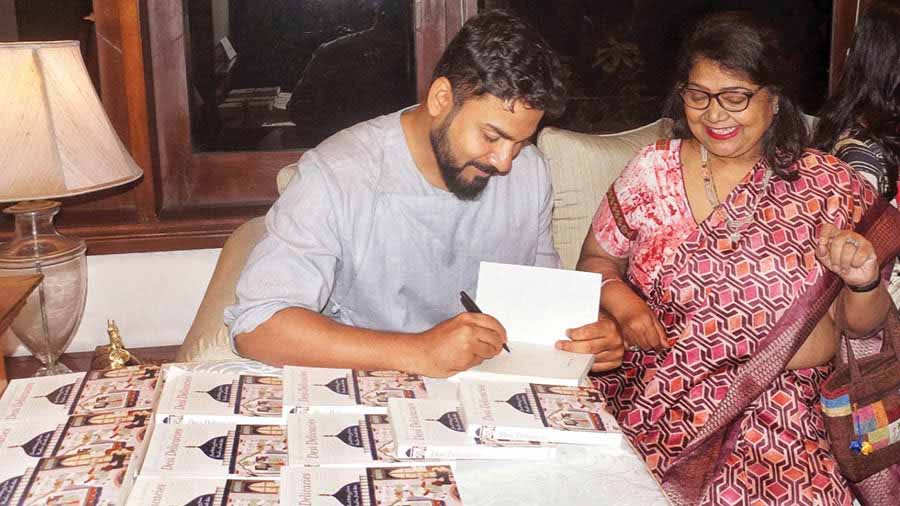
Hussain signing copies of his book, ‘Desi Delicacies’
While Hussain upholds the idea that there is nothing called “authentic food”, given the competing histories and the diverse variations of preparations that exist, he also admits that there should be some checks as to the extent to which food is being experimented with. “There’s a fine line between fusion and confusion. Roshogolla chai, for example, is a bit confusing. You can experiment with various flavours of chai, but not everything works. A dosa ice cream is a definite no-no, while a chilli ice cream, surprisingly, is a thing [that works].”
“Cooking should be about understanding every ingredient and not just mixing things randomly. Food, to me, is like jazz music, where each element has its place. You need to understand the notes of your spices,” concluded the author.
The event came to a close with a Q&A session with the audience. Shefali Rawat Agarwal, Ehsaas Woman of Kolkata, delivered the vote of thanks on behalf of the Foundation and Esha Dutta, honorary convenor of Northeast affairs, felicitated the author.
Guest speak
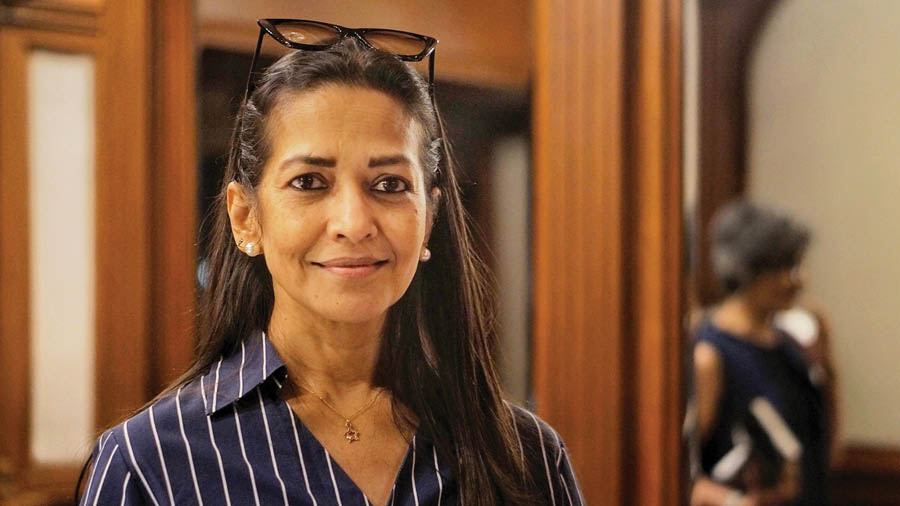
Esha Dutta
“Food is such an intrinsic part of all our lives. It was nice to get someone else’s perspective on our diverse food and palettes. Sadaf is not just a chef but also a food blogger and he has worn many hats. It was an interesting session and I’m looking forward to reading the book.”
— Esha Dutta, honorary convenor of Northeast affairs, Prabha Khaitan Foundation
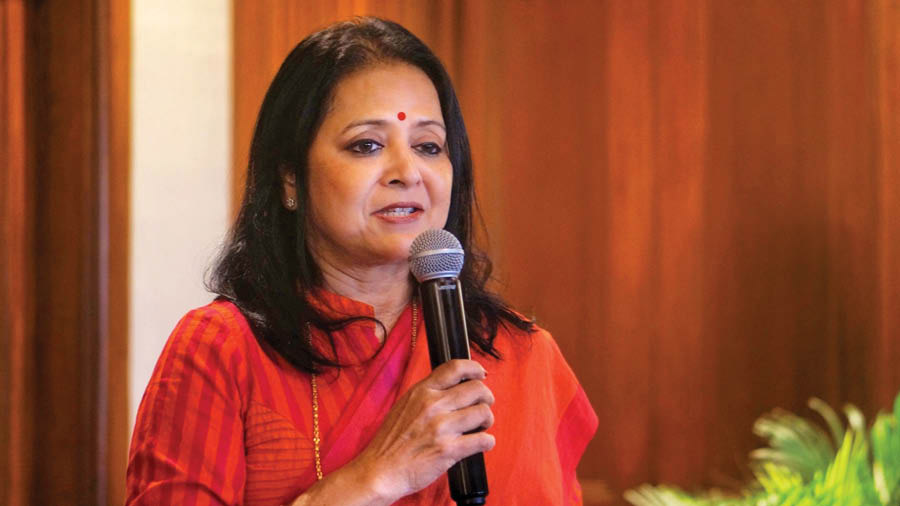
Gouri Basu
“The way Sadaf spoke about the history, origin and background of food made the session all the more interesting. He also talked about street food, which is so much a part of all of our lives. I think the fact that he differentiated between fusion and confusion in food was commendable.”
— Gouri Basu, Ehsaas Woman of Kolkata
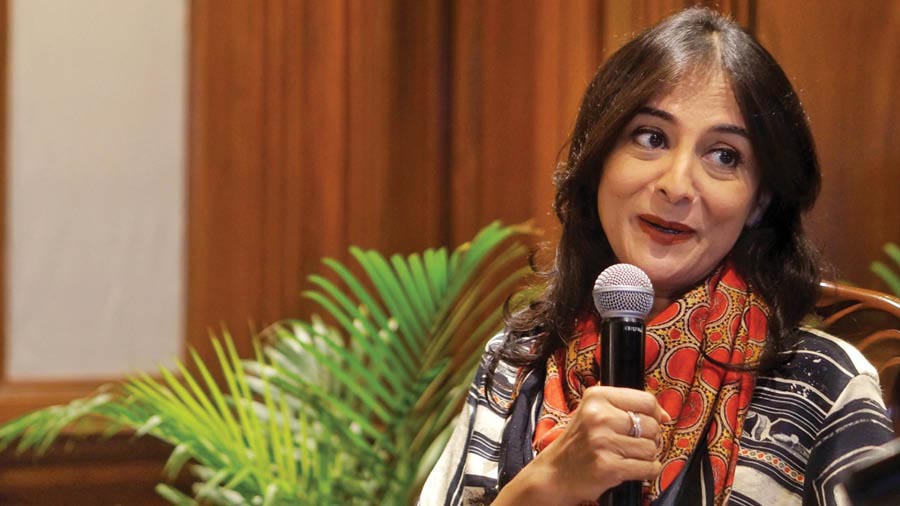
Anjum Babukhan
“What Sadaf is doing as a storyteller, an author or even as a chef consultant is that he’s trying to create an experience of food that’s multisensorial. That’s something I really appreciate. Moreover, this is only my second trip to Kolkata. I had a Bengali thali for the very first time and I had shorshe machh and mishti doi for the first time, too, and they were all delectable!”
— Anjum Babukhan, Ehsaas Woman of Hyderabad
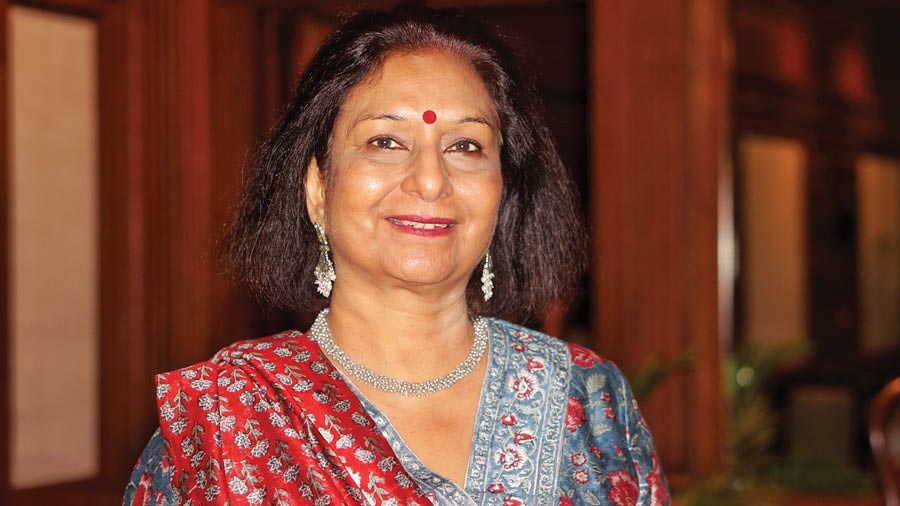
Sarika Misra
“I loved the storytelling bit of the evening, where the nature of food was connected to the city. I’m a foodie but not a cook, and so the stories enticed me more than the ingredients.”
— Sarika Misra, guest of Prabha Khaitan Foundation
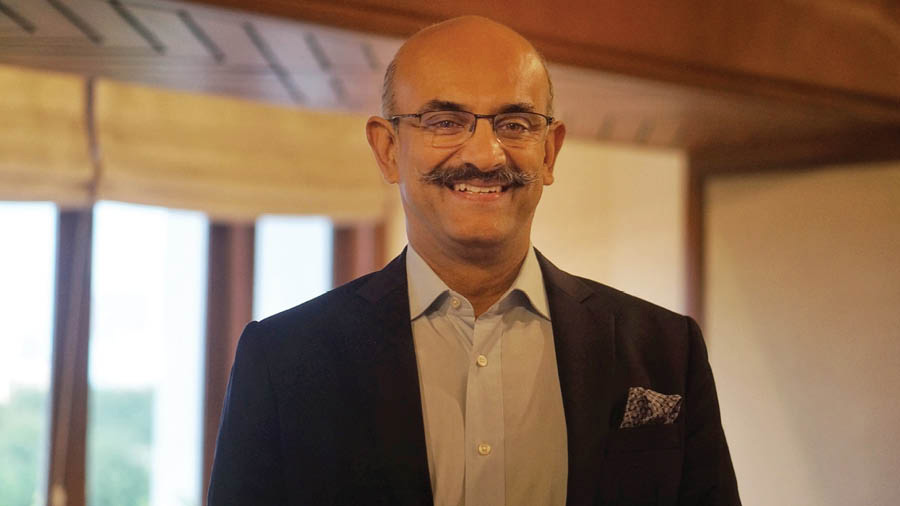
K. Mohanchandran
“Sadaf is a wonderful chef and the dishes he serves all have a story to them. I’d have loved to hear him talk first hand about his travels and tales.”
— K. Mohanchandran, senior vice president of operations, IHCL
